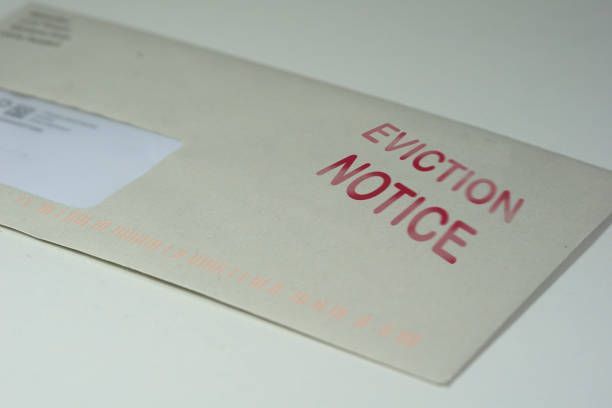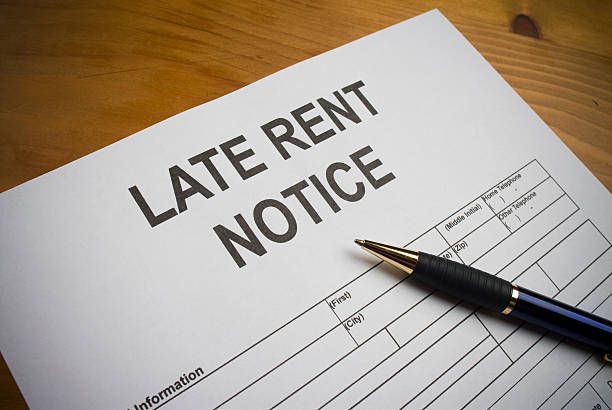Landlord & Tenant
Administration of Justice
Overall, landlord and tenant disputes in Ontario can be a difficult and complicated issue. It is important that both parties understand their rights and responsibilities in order to avoid disputes. By being aware of the laws and regulations that govern landlord and tenant relationships in Ontario, landlords and tenants can ensure that their rental agreements are fair and mutually beneficial.
CIVIL | TRIBUNALS | PERSONAL INJURY | CRIMINAL
Have a Team Member Call You
Get Started Today to Discuss Your Legal Needs.
Peace & quiet brought to you
by our team
Get the Help You Need
In the complex legal world of landlord and tenant law, our job is to guide you through the challenges of renting. Renters and landlords alike can benefit from our services.
Quick Resolution
Whatever the problem, we can help. Our goal is to provide you with a resolution as quickly as possible - without adding unnecessary stress or time to the process.
Are you facing a landlord and tenant dispute in Ontario? If so, you may be wondering if and how a Cordaie Paralegal Services can help. The answer is that we can provide invaluable assistance in navigating the dispute resolution process.
A paralegal can help you understand your rights and obligations under the Residential Tenancies Act (RTA), and provide you with advice on the best way to proceed. We can help you understand the rules and regulations that apply to landlords and tenants in Ontario, and can help you negotiate a settlement that is mutually agreeable.
Our paralegal can also represent you in court, should the situation escalate to the point where legal action is necessary. They can handle the paperwork and filings required in the court process, as well as provide guidance on any other steps needed to move the case forward.
If you are in the process of negotiating a settlement, our team can help you draft a legally binding agreement that both parties can agree to. They can also explain the implications of the agreement, to ensure that you are making an informed decision.
Finally, if the situation is more complicated than a simple dispute, we can provide invaluable assistance in other areas of the law, such as contract law, civil litigation including Small Claims Court.
Having our firm on your side can be a great asset in a landlord and tenant dispute in Ontario. We can provide advice and guidance on the best way to proceed, represent you in court, and help you negotiate a mutually agreeable settlement.
If you are facing a dispute, it is important to seek legal advice from a professional who is familiar with the laws and regulations that apply in Ontario.
As always,
consultations are free. Schedule yours today at
844-4-WIN-4-ME.
Our Services Benefit Landlords & Tenants in Several Ways
LANDLORDS & TENANTS NEED TO KNOW
Understand Your Rights & Responsibilities
Renting a home can be a complex process, and it's important for both landlords and tenants in Ontario to understand their respective rights and responsibilities. As the landlord or tenant, it's essential to familiarize yourself with the rules and regulations associated with renting in Ontario.
In Ontario, both landlords and tenants have specific rights and responsibilities that are outlined in the Residential Tenancies Act. This Act outlines the rights and obligations of landlords and tenants, including rent increases, ending a tenancy, repairs, and other related matters.
When it comes to rental payments, tenants in Ontario must pay their rent on time and in full. Landlords are responsible for providing a clear and written rental agreement to their tenants, and tenants must follow the terms of the agreement. The agreement should include all details related to rent payments, including when and how rent is due. Landlords must also maintain their rental property in good condition and ensure the safety of their tenants.
When it comes to ending a tenancy, landlords and tenants must provide proper notice and follow the rules specified in the Residential Tenancies Act. Landlords must provide a minimum of 60 days notice if they plan to terminate the tenancy, while tenants are required to provide a minimum of 28 days notice. In some cases, tenants may be able to end their tenancy with fewer days of notice.
In Ontario, landlords are also responsible for paying for certain types of repairs. This includes maintenance and repairs to the structure of the building, such as the roof and walls, and to the common areas, such as the hallway and stairwells. Landlords must also make sure that all appliances and fixtures, such as the stove, refrigerator, and faucets, are in good working order.
It's important for both landlords and tenants in Ontario to understand their rights and responsibilities before entering into a rental agreement. The Residential Tenancies Act outlines the rules and regulations that both landlords and tenants must follow in order to ensure a fair and safe rental experience for all parties involved. Understanding these rights and responsibilities will help to ensure that both landlords and tenants have a positive rental experience.
Low Prices Aren't the Only Thing That Matters
It's Our Fantastic Service That Sets Us Apart
Honest Opinions
Our goal is to keep you informed and realistic about your legal situation to provide a superior client experience. Honesty is our top priority so you don't have any surprises when making decisions.
Team Approach
To develop the most effective, tailored strategy for you, our dedicated team will work diligently from beginning to end to obtain a deep understanding of your situation.
Budget Friendly
We offer affordable legal counsel without breaking the bank and will help you find a payment plan that fits your budget. Our flexible arrangements, lower rates, and alternative fee structures make our services incredibly affordable!
The REGULATING AUTHORITY
The Residential Tenancies Board
When it comes to rental housing in Ontario, the Residential Tenancies Act (RTA) is the primary source of rights and responsibilities for landlords and tenants. The act sets out the rules that landlords must follow when renting out their properties and outlines tenant rights and obligations. The act is enforced and administered by the Landlord and Tenant Board (LTB).
The LTB is an administrative tribunal that resolves disputes between landlords and tenants. It has the authority to order a tenant to pay rent, order a landlord to return a tenant’s security deposit, or order a landlord to make repairs. The LTB also helps to interpret the RTA and makes decisions based on the law.
The LTB also provides information to landlords and tenants about their rights and responsibilities under the RTA, including the legal process for dealing with disputes. They offer educational seminars and workshops on a variety of topics, including understanding the RTA, rent increases, and evictions.
For landlords, the LTB provides a range of services to help them comply with the RTA, such as providing information on how to set up a rental agreement, understanding the rules on rent increases, and the process for evicting a tenant. The LTB also has an online dispute resolution system that can be used to resolve small claims.
For tenants, the LTB provides information about their rights and responsibilities under the RTA, including the legal process for dealing with disputes. The LTB also has an online system for filing tenant applications and complaints.
Overall, the Landlord and Tenant Board is an important resource for landlords and tenants in Ontario. It provides information about the RTA, helps to interpret the law, and offers dispute resolution services. For landlords and tenants, the LTB is an invaluable resource in helping to ensure that rental housing in Ontario is safe and fair.
Landlord & Tenant
We can help you with the following services:
- Evictions
- General advice
- Rental property contracts
- Defending yourself against claims
- Disagreements between neighbours
- Arrears & damages payments
- Legislative problems
- Access issues
- Disagreements over property lines
- Providing you with legal representation
- Completing and serving forms
Since housing law is such a complex topic, understanding it could be a challenge. You will inevitably encounter a housing dispute at some point in your life, whether you're a landlord or a tenant. For a full understanding of a problem or inquiry, you may need more information.
Whatever your circumstances, the Residential Tenancies Act (RTA) is always our first port of call. Most landlords and tenants in Ontario are covered by this legislation, which outlines their rights and responsibilities. Additionally, it governs relationships. Most residential rental units in Ontario are subject to this law, including care homes, mobile homes, and rooming and boarding houses.
In these cases, it does not apply:
- If you share a bathroom or kitchen with the owner or the owner's family
- You are a roommate or a guest of the tenant
- When the unit is only used temporarily or seasonally
- A commercial lease is held by you
Similarly, landlords and tenants cannot utilize the RTA's provisions to address rent, maintenance, and eviction issues in some units. Non-profit housing and college and university housing are examples.
To comply with the law, landlords must understand their obligations. Failure to comply with the law cannot be justified by a lack of knowledge of the regulations, so errors cannot be excused. Simply put, you must know what the Residential Tenancies Act requires.
A portion of our website identifies some of the critical problems landlords and tenants in Ontario face when starting, during or ending a tenancy. You can still benefit from our free case consultation even if your situation does not fall within the RTA's scope. You may also be able to resolve your dispute through Alternative Dispute Resolution or Small Claims Court.
Do I Have a Case?
Find out now for free.
When it comes to your legal concerns, our team is your steadfast ally. Our seasoned advisors are well-versed in the intricacies of the law, ensuring you receive expert guidance tailored to your unique situation.
Don't navigate the complexities alone—reach out to us now and take the first step towards a resolution that puts your mind at ease.
OOPS! There was an error sending your message. Please try again or email us directly at hello@cordaie.com.
Thank you.
Legal Lifeline:
Get the Help You Need, Right Now!
Reach us seven days per week between 7 a.m. and 8 p.m.










